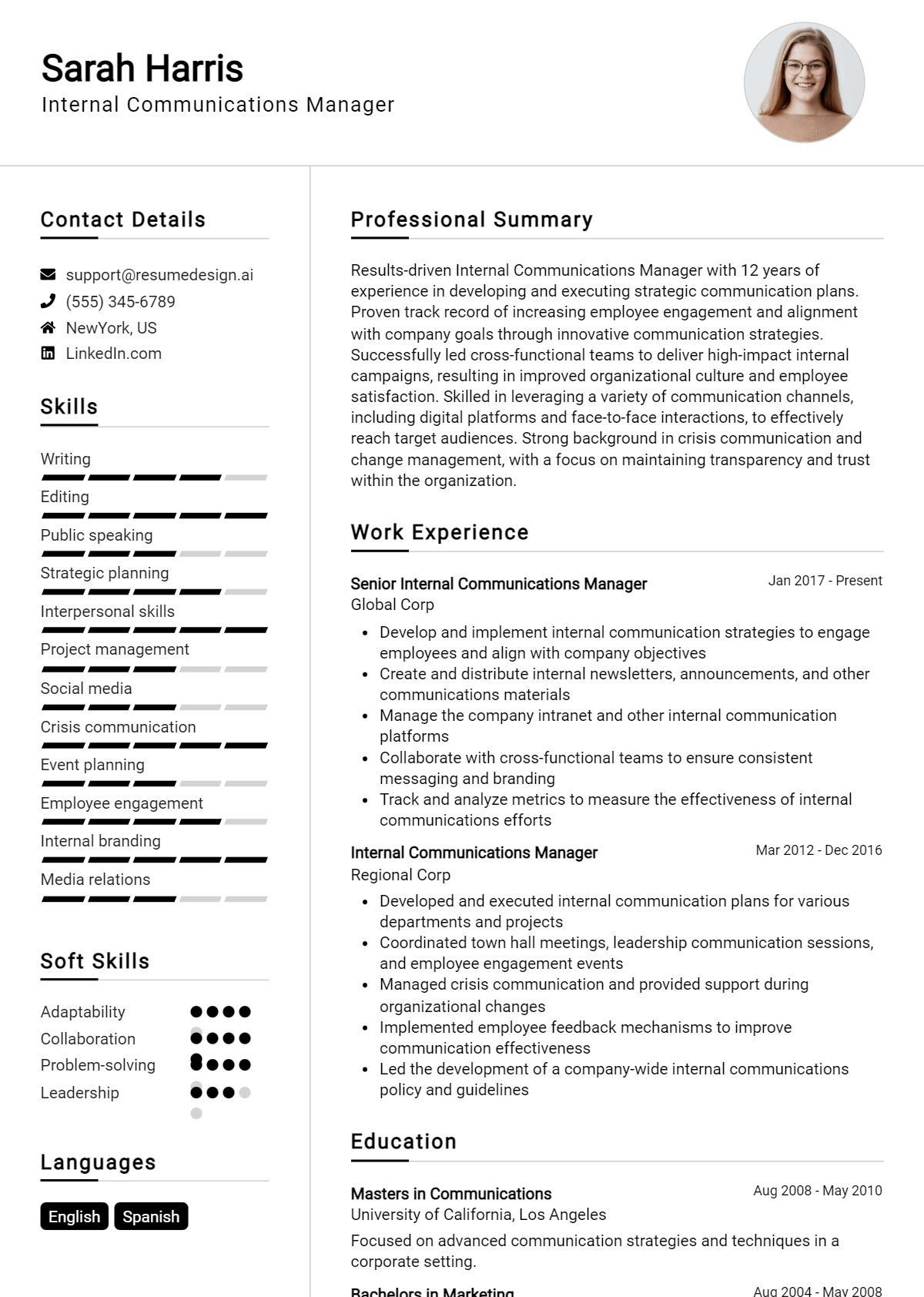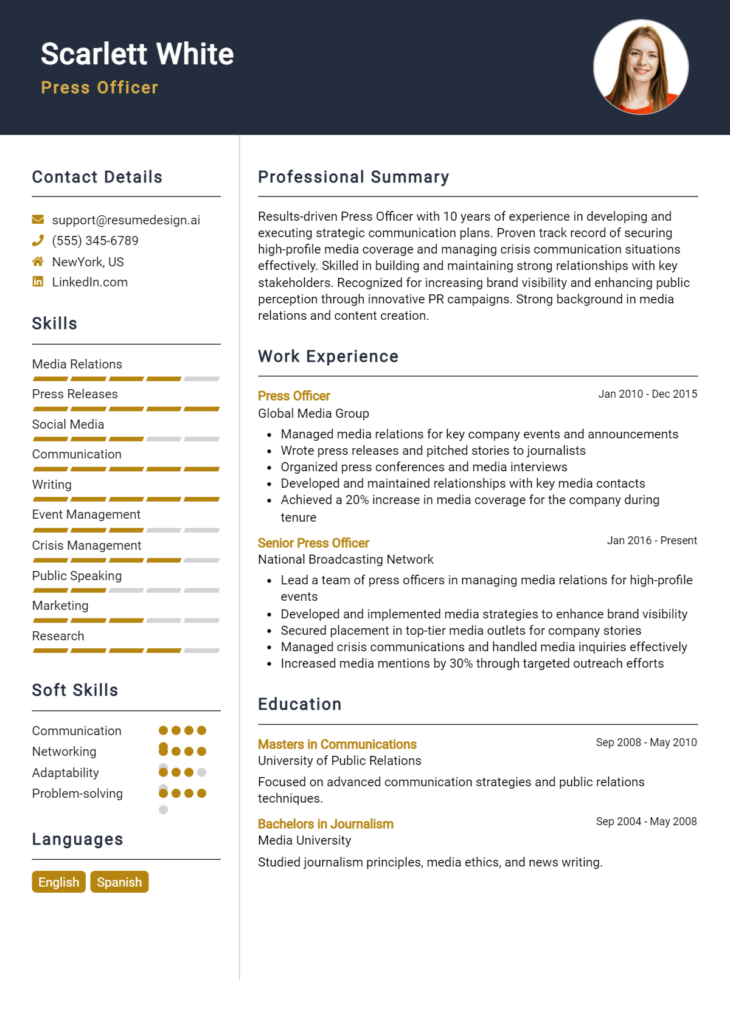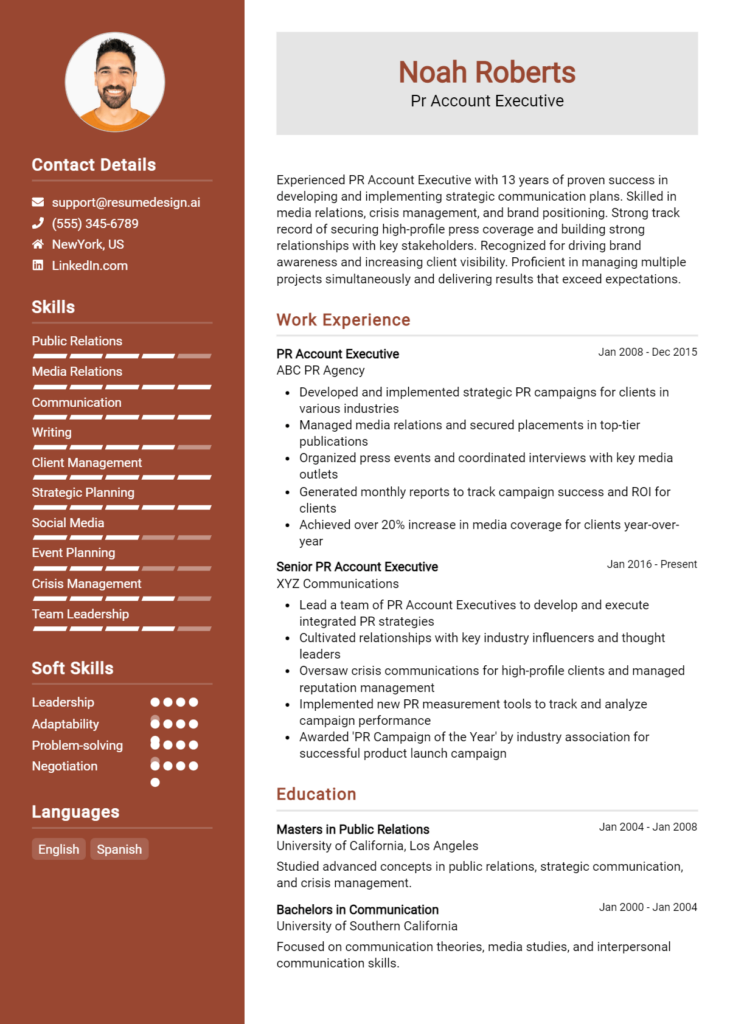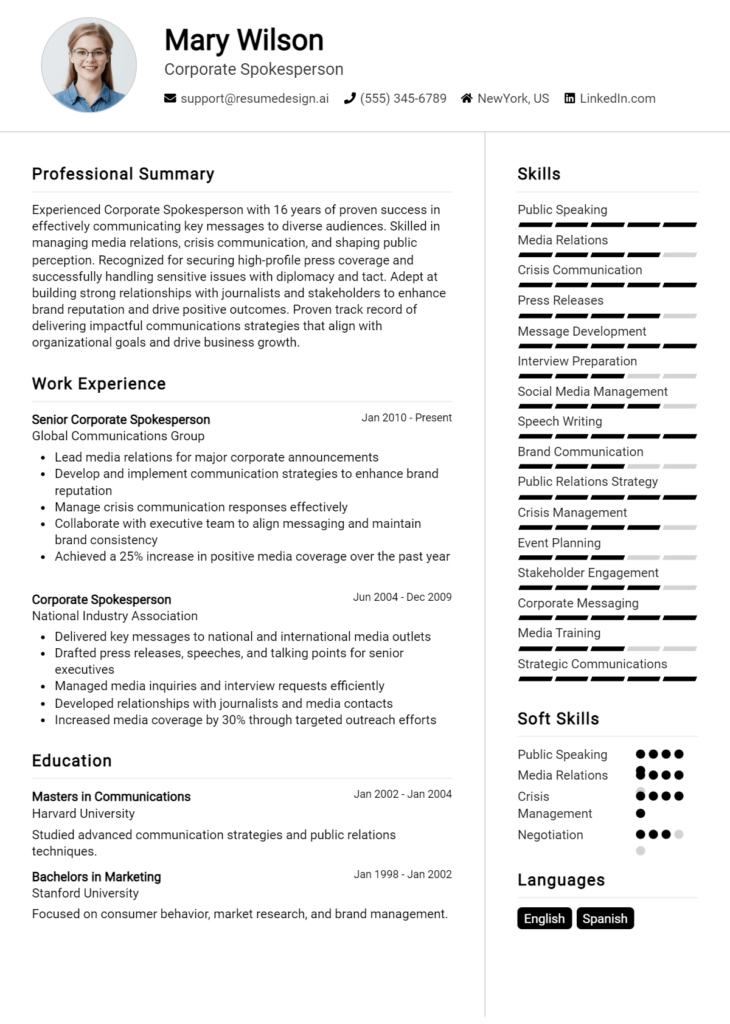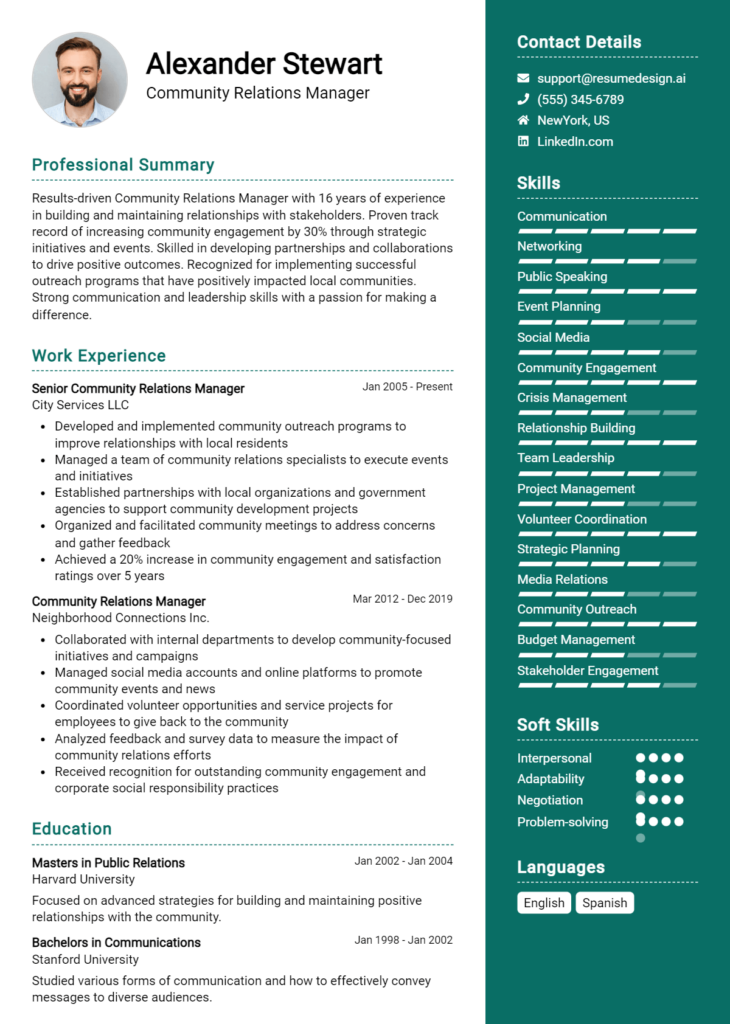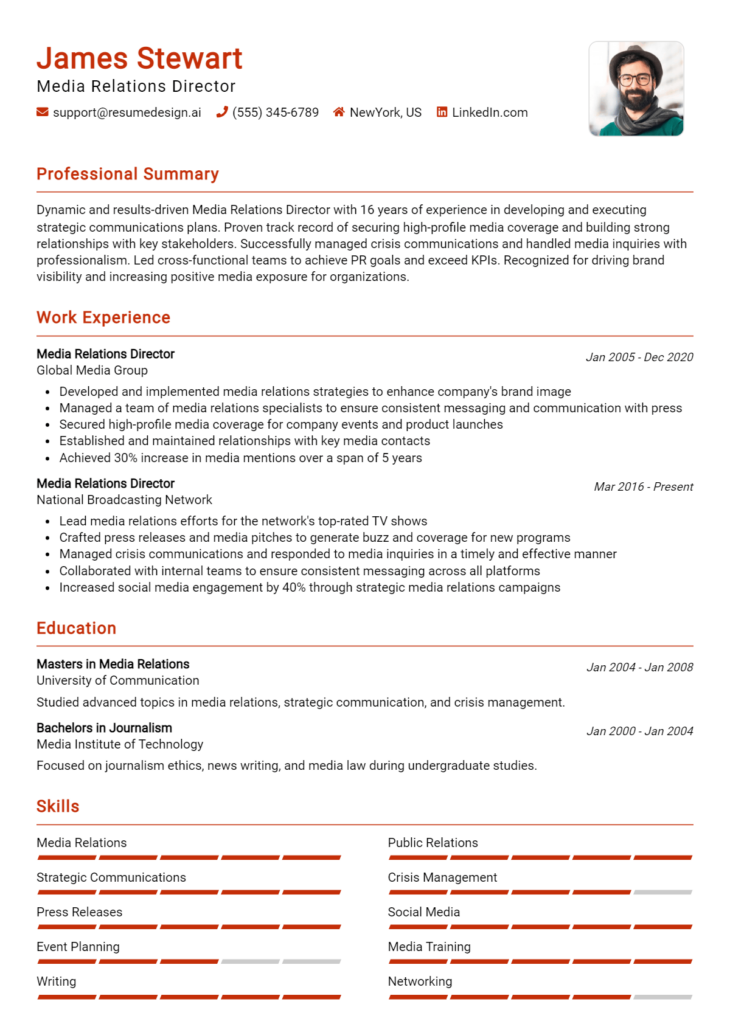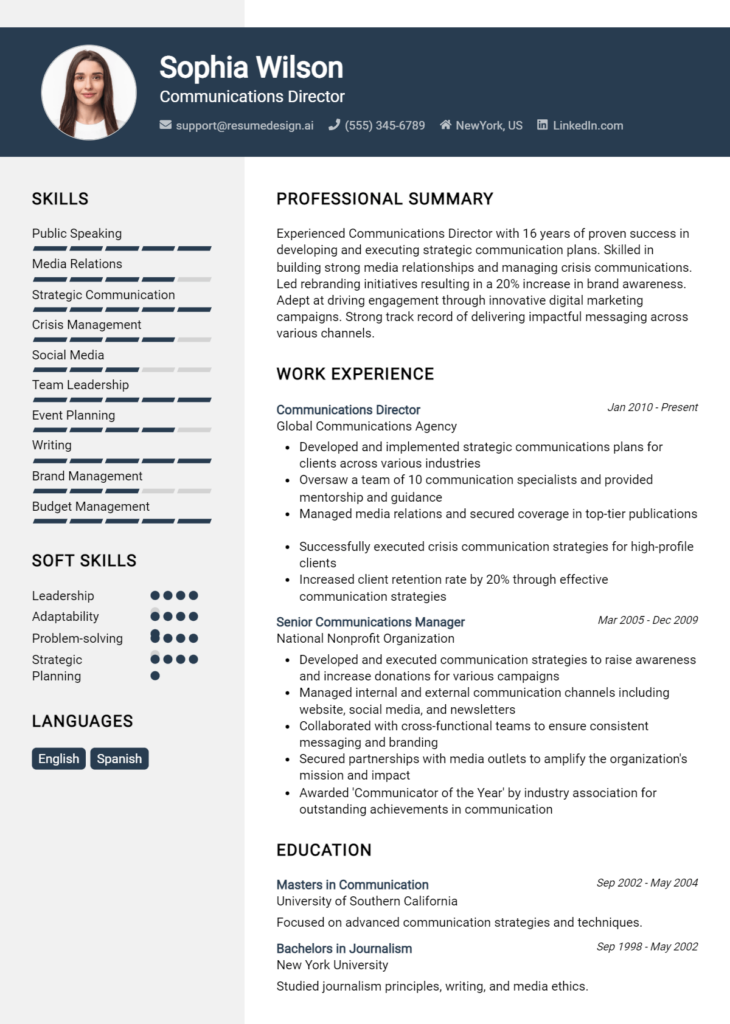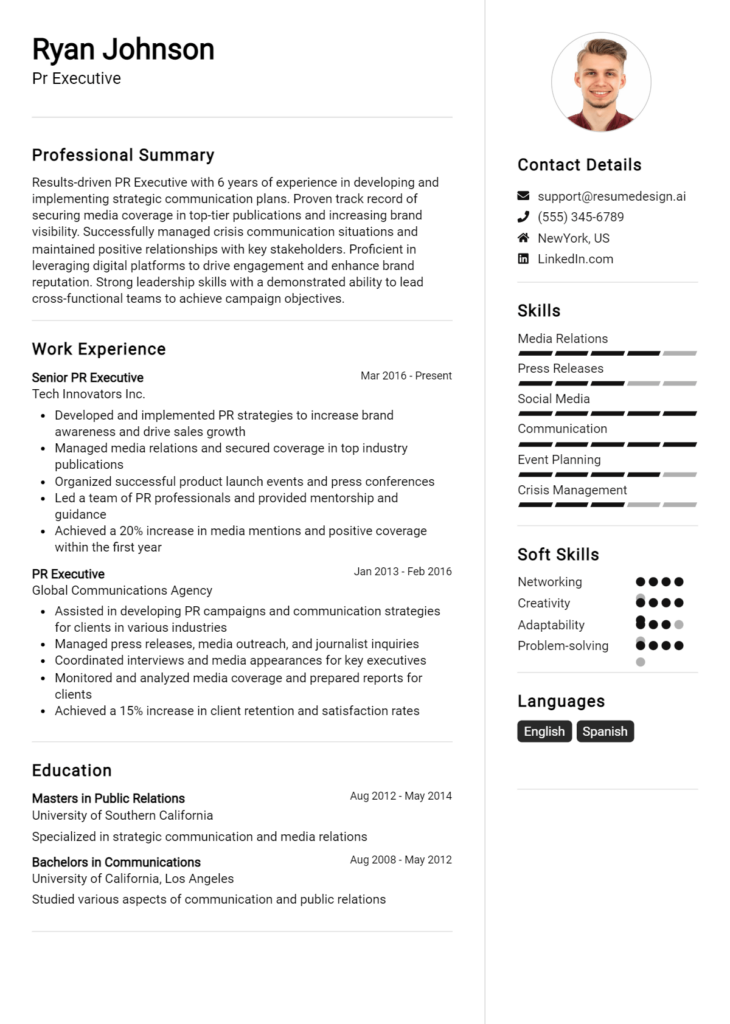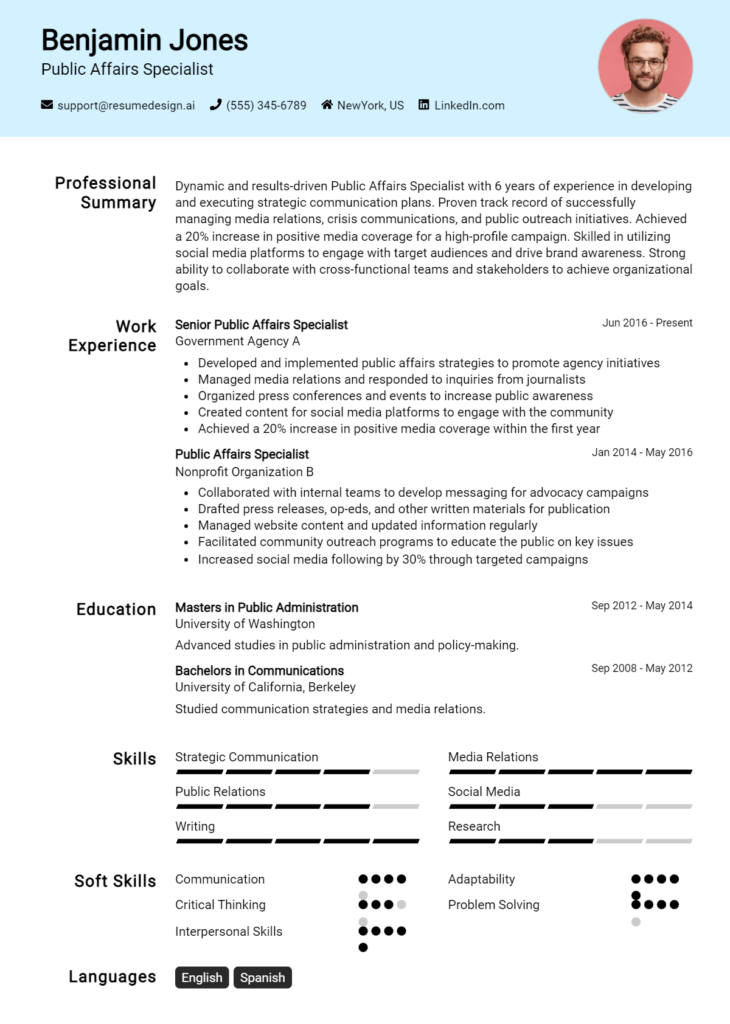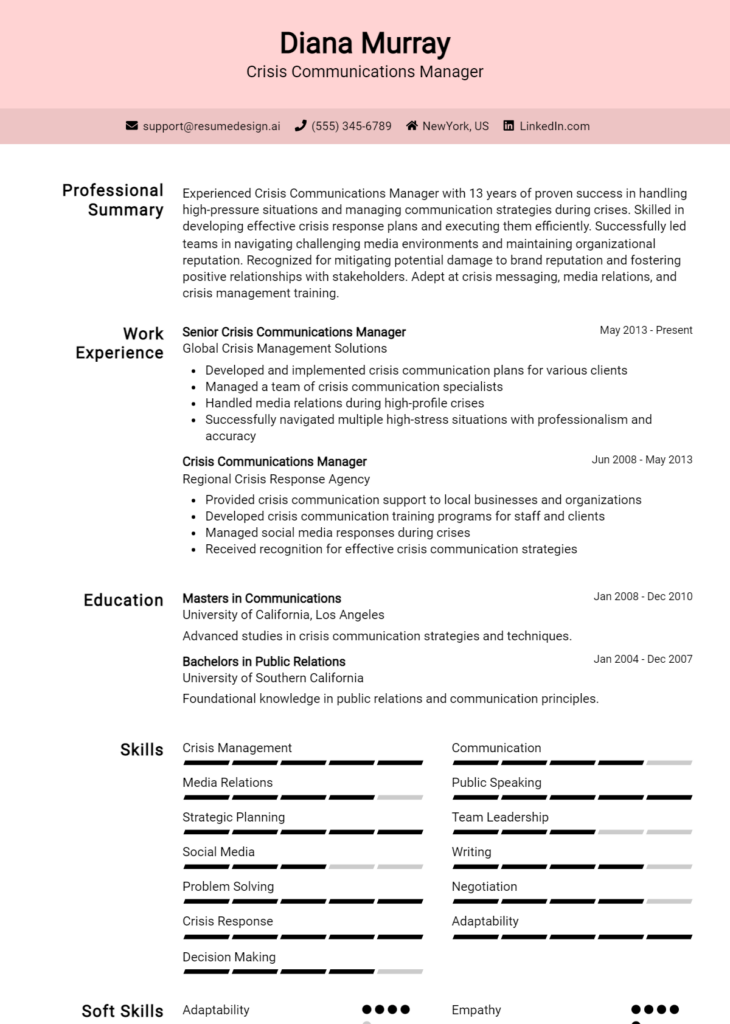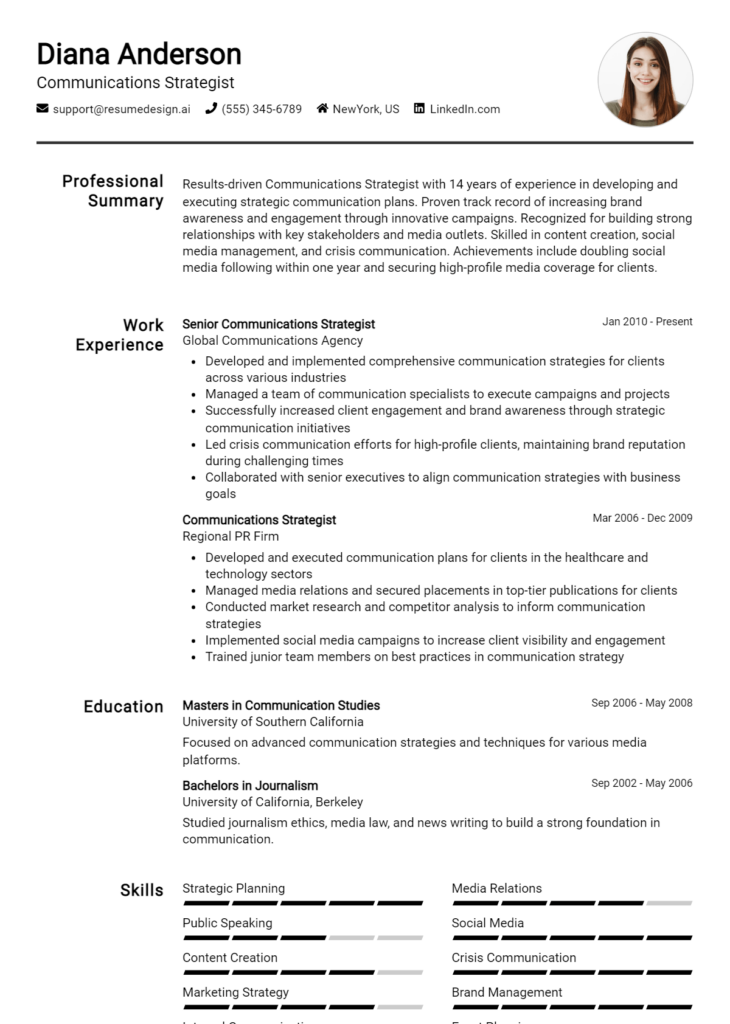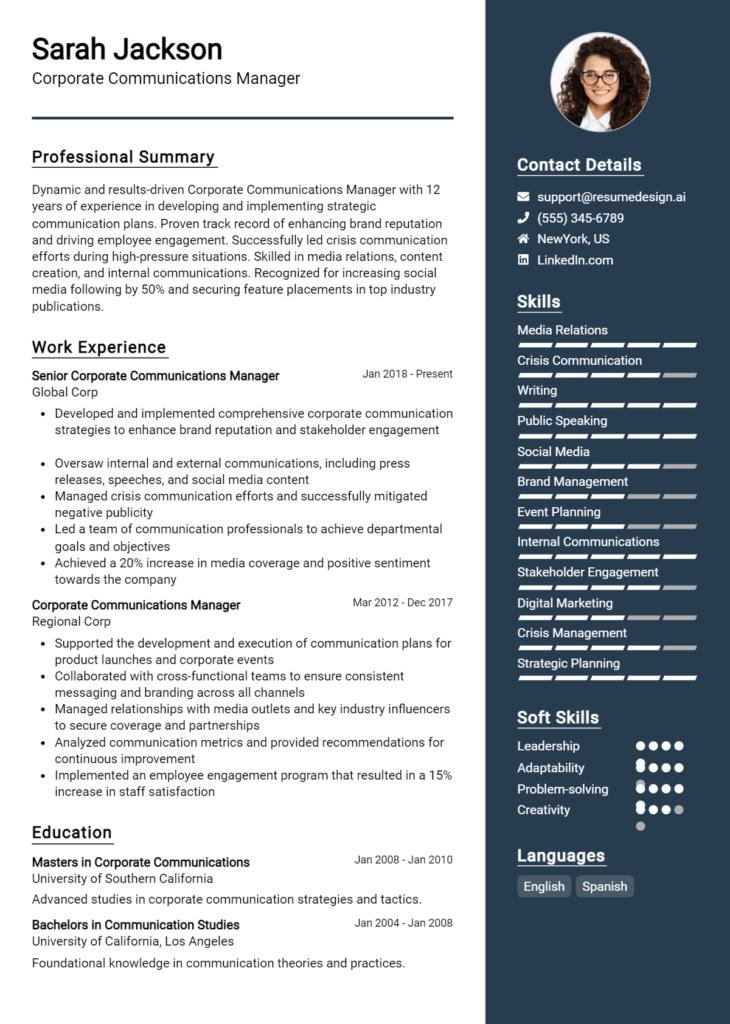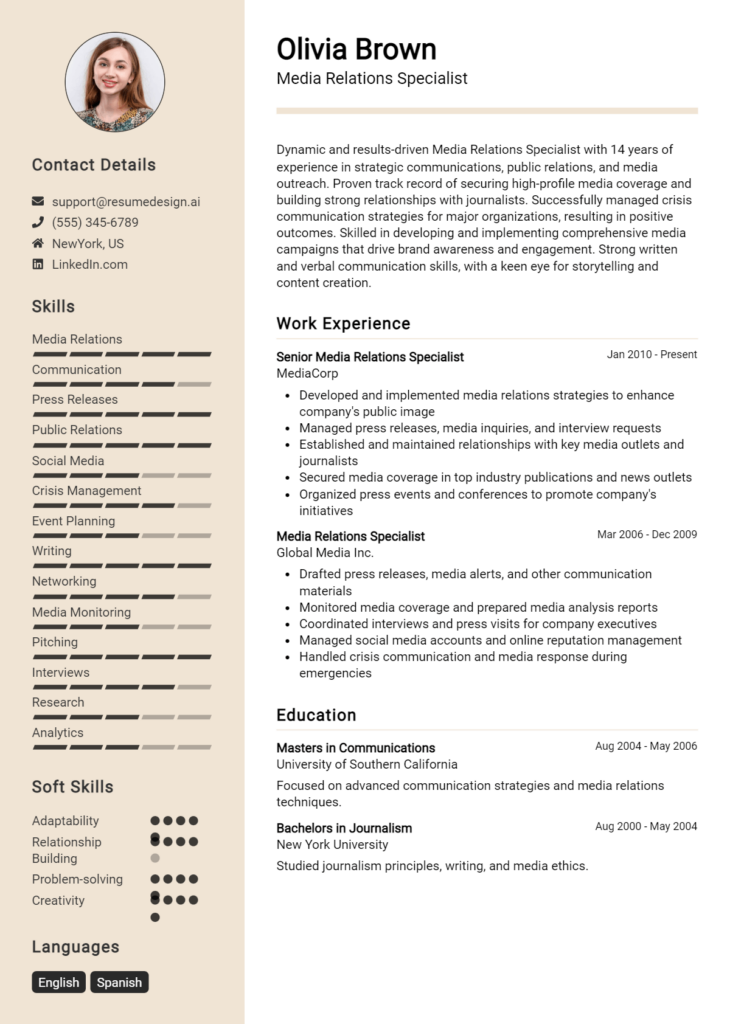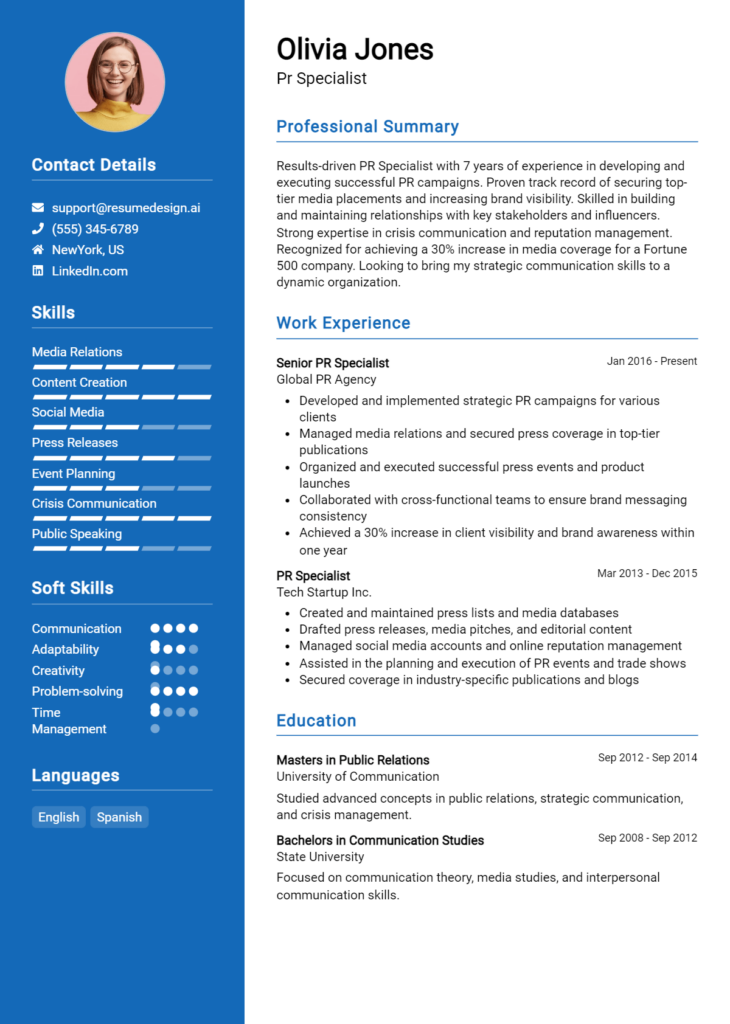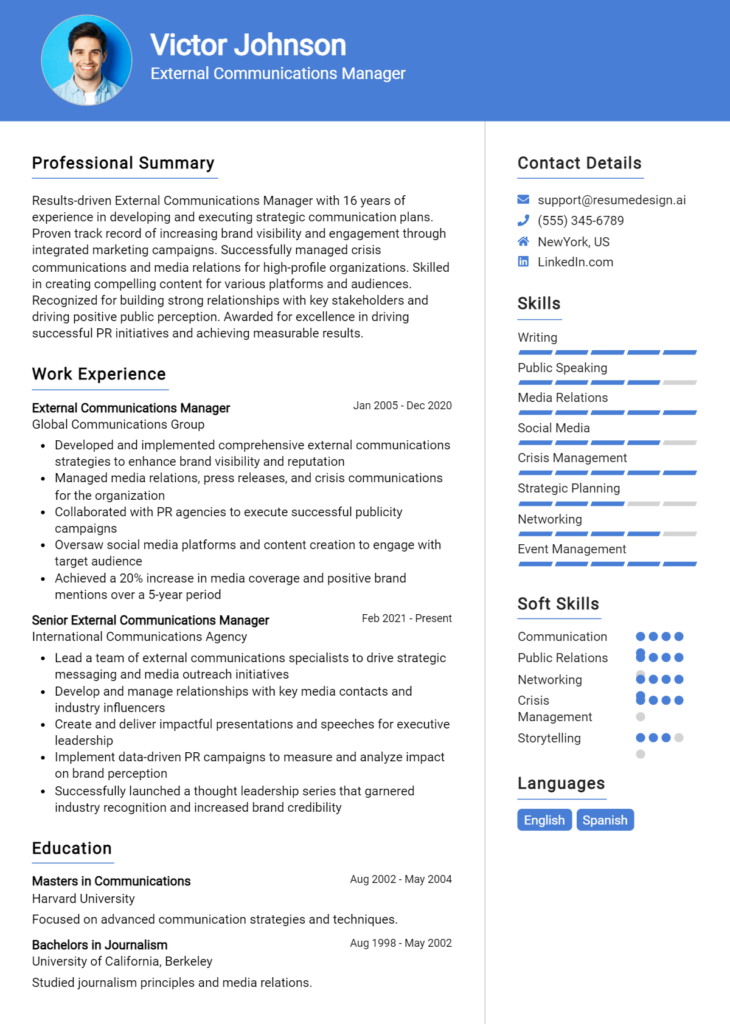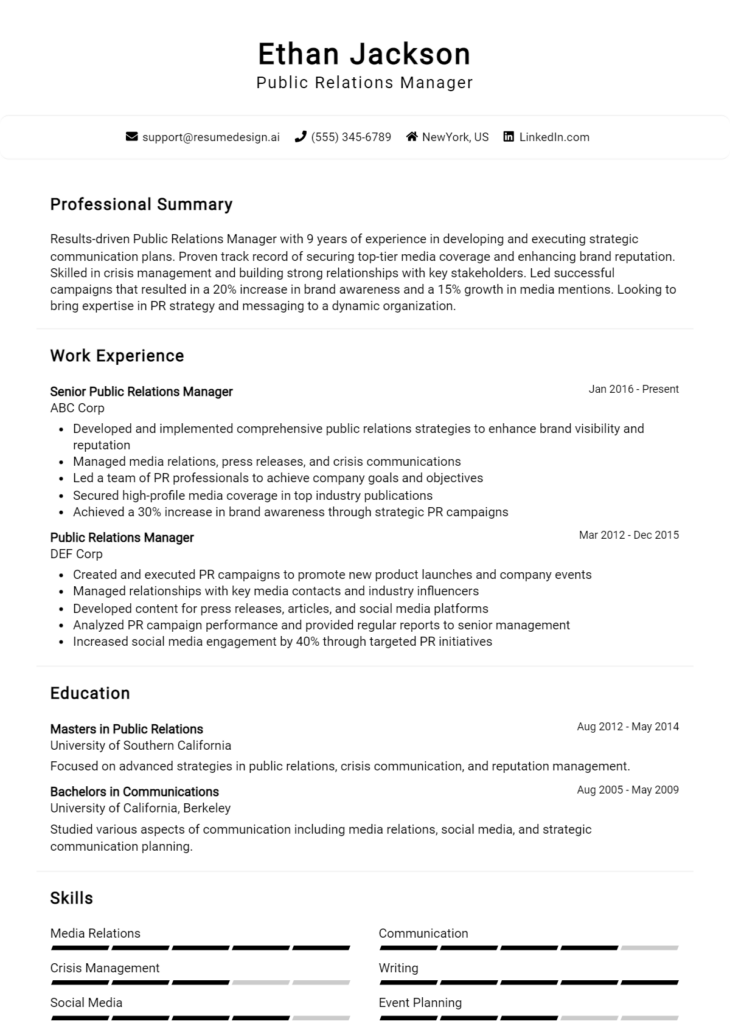Internal Communications Manager Core Responsibilities
The Internal Communications Manager plays a pivotal role in fostering collaboration across various departments, ensuring that critical information flows seamlessly throughout the organization. Key responsibilities include developing communication strategies, crafting engaging content, and managing internal channels to enhance employee engagement. Essential skills encompass strong technical prowess, operational acumen, and adept problem-solving abilities, all crucial for aligning communication initiatives with organizational goals. A well-structured resume can effectively highlight these qualifications, showcasing the candidate's ability to drive a cohesive workplace culture.
Common Responsibilities Listed on Internal Communications Manager Resume
- Develop and implement internal communication strategies and plans.
- Create and manage content for internal newsletters, bulletins, and intranet.
- Facilitate two-way communication between management and employees.
- Organize and coordinate internal events and town hall meetings.
- Measure and analyze the effectiveness of communication initiatives.
- Collaborate with HR and other departments to promote company culture.
- Provide guidance on communication best practices to teams.
- Manage crisis communication and sensitive information dissemination.
- Utilize digital tools and platforms to enhance internal messaging.
- Ensure alignment of communications with organizational goals and values.
- Train and support employees on communication protocols and tools.
High-Level Resume Tips for Internal Communications Manager Professionals
In today's competitive job market, a well-crafted resume serves as a pivotal first impression for Internal Communications Manager professionals. This document is not merely a list of previous roles; it is a powerful marketing tool that showcases your skills, achievements, and unique qualifications to potential employers. A compelling resume should accurately reflect your expertise in fostering internal communication, building employee engagement, and managing organizational messaging. In this guide, we will provide practical and actionable resume tips specifically tailored for Internal Communications Manager professionals, ensuring you stand out in the hiring process.
Top Resume Tips for Internal Communications Manager Professionals
- Tailor your resume to the job description, using keywords and phrases that align with the specific requirements of the role.
- Highlight relevant experience in internal communications, corporate messaging, stakeholder engagement, and employee relations.
- Quantify your achievements with metrics, such as improved employee engagement scores, successful campaign reach, or enhanced communication efficiency.
- Showcase industry-specific skills, including proficiency in communication tools, content creation, and strategic planning.
- Include a summary statement that emphasizes your career highlights and sets the tone for your qualifications.
- Utilize bullet points to make your accomplishments easy to read and impactful, focusing on results rather than responsibilities.
- Incorporate relevant certifications or training that demonstrate your commitment to professional development in internal communications.
- Keep the design clean and professional, ensuring that your resume is easy to navigate and visually appealing.
- Proofread your resume for errors and inconsistencies, as attention to detail is crucial in a communications role.
- Consider including a section for volunteer work or projects that demonstrate your communication skills in diverse environments.
By implementing these tailored resume tips, you can significantly enhance your chances of landing a job in the Internal Communications Manager field. A polished and strategic resume will not only highlight your qualifications but also convey your understanding of effective communication, setting the stage for a successful career in this dynamic role.
Why Resume Headlines & Titles are Important for Internal Communications Manager
In the competitive field of internal communications, a well-crafted resume headline or title can significantly enhance a candidate's visibility to hiring managers. As an Internal Communications Manager, your resume is often the first impression you make, and a strong headline serves as a powerful introduction, summarizing your key qualifications in a concise and impactful manner. A compelling headline not only grabs attention but also sets the tone for the rest of your resume, making it essential to ensure that it is relevant to the job being applied for. By encapsulating your expertise and value proposition in just a few words, you position yourself as a strong contender for the role.
Best Practices for Crafting Resume Headlines for Internal Communications Manager
- Be concise: Aim for a headline that is no longer than one or two lines.
- Use role-specific keywords: Incorporate terminology commonly used in the internal communications field.
- Highlight key achievements: Focus on your most impressive accomplishments or skills.
- Showcase unique value: Differentiate yourself by mentioning a specific strength or expertise.
- Tailor for the job: Customize your headline for each application to align with the job description.
- Maintain professionalism: Use formal language that reflects your professional experience.
- Consider including numbers: Quantify your achievements when possible to add credibility.
- Keep it relevant: Ensure your headline reflects your current skills and experiences.
Example Resume Headlines for Internal Communications Manager
Strong Resume Headlines
Dynamic Internal Communications Manager with 10+ Years of Experience Driving Employee Engagement
Strategic Communicator Specializing in Change Management and Organizational Development
Results-Oriented Internal Communications Leader with Proven Track Record in Crisis Communication
Innovative Internal Communications Professional Skilled in Multi-Channel Strategies and Content Creation
Weak Resume Headlines
Looking for a Job in Communications
Communications Manager with Various Skills
Experienced Professional Seeking Opportunities
The strong headlines are effective because they immediately convey the candidate's qualifications, emphasizing specific skills and experiences relevant to the Internal Communications Manager role. They use action-oriented language and provide a clear value proposition, making them memorable and impactful. In contrast, the weak headlines lack specificity and fail to highlight any unique strengths or relevant experiences, making them forgettable and less compelling in a competitive job market.
Writing an Exceptional Internal Communications Manager Resume Summary
A well-crafted resume summary is a vital component for an Internal Communications Manager, as it serves as the first impression a hiring manager will have of a candidate. This introductory paragraph is crucial because it quickly captures the attention of hiring managers by succinctly showcasing key skills, relevant experience, and significant accomplishments related to the role. An effective summary should be concise and impactful, tailored specifically to the job in question, enabling the candidate to stand out in a competitive job market.
Best Practices for Writing a Internal Communications Manager Resume Summary
- Quantify Achievements: Use numbers to illustrate your successes, such as engagement rates or communication reach.
- Focus on Skills: Highlight specific skills that are relevant to internal communications, such as strategic planning, stakeholder engagement, and content creation.
- Tailor the Summary: Customize your summary to align with the job description and company values of the position you are applying for.
- Be Concise: Aim for 2-4 sentences that encapsulate your professional identity and key qualifications without unnecessary details.
- Use Action Verbs: Start sentences with strong action verbs to convey a sense of proactivity and leadership.
- Showcase Relevant Experience: Include your most pertinent experiences that demonstrate your ability to lead internal communications effectively.
- Highlight Soft Skills: Mention soft skills like collaboration, creativity, and adaptability, which are essential for engaging various stakeholders.
- Reflect Company Culture: Use language that resonates with the company’s culture to show that you are a good fit for their team.
Example Internal Communications Manager Resume Summaries
Strong Resume Summaries
Results-driven Internal Communications Manager with over 8 years of experience enhancing employee engagement through innovative communication strategies, achieving a 30% increase in internal survey participation. Expert in crafting compelling narratives and utilizing various platforms to foster a culture of transparency and collaboration.
Dynamic communications professional with a proven track record of developing and executing internal communication plans that improved employee satisfaction scores by 25%. Skilled in managing cross-functional teams and leveraging analytics to drive strategic messaging initiatives.
Accomplished Internal Communications Manager with 10+ years of experience in corporate settings, recognized for launching a new intranet platform that enhanced employee engagement by 40%. Proficient in creating tailored content for diverse audiences to ensure alignment with corporate goals.
Weak Resume Summaries
Experienced communicator looking for a role in internal communications. Good at writing and managing projects.
Internal Communications Manager with various skills and experience in different industries. Interested in improving communication within the company.
The examples of strong resume summaries are considered effective because they provide specific, quantifiable results that demonstrate the candidate's impact in previous roles. They also highlight relevant skills and experiences tailored to the internal communications field. In contrast, the weak resume summaries are vague and lack specific achievements or details that would make them stand out to hiring managers. They fail to convey the candidate's value or relevance to the position, making them less compelling.
Work Experience Section for Internal Communications Manager Resume
The work experience section of an Internal Communications Manager resume is pivotal in demonstrating the candidate's technical skills, leadership capabilities, and competency in delivering high-quality communication products. This section serves as a showcase for how effectively the candidate has managed teams, executed strategic initiatives, and contributed to organizational goals. Highlighting quantifiable achievements—such as increased employee engagement metrics or successful campaign results—is essential for aligning the candidate's experience with industry standards and demonstrating their potential impact in future roles.
Best Practices for Internal Communications Manager Work Experience
- Focus on specific technical skills relevant to internal communications, such as content creation, digital communication tools, and analytics.
- Quantify achievements with metrics (e.g., "Increased employee engagement by 30% through targeted communication strategies").
- Highlight leadership roles and collaboration with cross-functional teams to demonstrate teamwork and project management abilities.
- Use action verbs to convey a sense of initiative and impact (e.g., "Developed," "Implemented," "Led").
- Tailor experiences to align with the job description and industry standards, ensuring relevance and applicability.
- Include examples of crisis communication or change management to illustrate adaptability and strategic thinking.
- Showcase familiarity with communication platforms and technology that enhance internal messaging.
- Prioritize the most relevant and recent experiences to maintain a focused narrative.
Example Work Experiences for Internal Communications Manager
Strong Experiences
- Led a company-wide initiative that revamped the internal newsletter, resulting in a 40% increase in readership and improved employee feedback scores.
- Implemented a new communication platform that streamlined information sharing, reducing email traffic by 25% and enhancing team collaboration.
- Managed a cross-departmental team to develop and execute an internal campaign that boosted employee engagement scores from 70% to 90% in just six months.
- Facilitated training sessions for over 100 employees on effective communication strategies, leading to a noticeable improvement in inter-departmental collaboration.
Weak Experiences
- Worked on communication projects that involved various tasks.
- Helped improve internal communications but did not track specific metrics.
- Participated in team meetings and contributed to discussions about internal communication.
- Assisted in developing content for the company without clear outcomes or responsibilities.
The examples provided highlight the distinction between strong and weak experiences based on their specificity and impact. Strong experiences clearly outline quantifiable results, demonstrate leadership and collaboration, and showcase the candidate's ability to drive meaningful change within the organization. In contrast, weak experiences lack detail, measurable outcomes, and fail to convey a sense of ownership or strategic contribution, making them less compelling to potential employers.
Education and Certifications Section for Internal Communications Manager Resume
The education and certifications section of an Internal Communications Manager resume is crucial as it showcases the candidate's academic qualifications, industry-relevant certifications, and commitment to continuous professional development. This section not only highlights the foundational knowledge acquired through formal education but also emphasizes specialized training and certifications that are directly applicable to the role. By providing relevant coursework and recognized credentials, candidates can significantly enhance their credibility and demonstrate their alignment with the expectations of hiring organizations, ultimately increasing their chances of standing out in a competitive job market.
Best Practices for Internal Communications Manager Education and Certifications
- Focus on relevant degrees such as Communications, Public Relations, or Business Administration.
- Include industry-recognized certifications, such as the Accredited Business Communicator (ABC) or Certified Internal Communications Professional (CICP).
- Highlight any specialized training in digital communication tools or platforms commonly used in internal communications.
- Provide details on relevant coursework that aligns with the skills required for the role, such as crisis communication or change management.
- Keep the information concise and well-organized to improve readability and impact.
- Prioritize certifications and training that reflect current trends and demands in the communications field.
- Include any ongoing education efforts, such as workshops or webinars, to demonstrate a commitment to continuous learning.
- Use bullet points for clarity and to draw attention to key qualifications.
Example Education and Certifications for Internal Communications Manager
Strong Examples
- Bachelor of Arts in Communication, University of California, 2015
- Certified Internal Communications Professional (CICP), International Association of Business Communicators, 2020
- Master’s in Business Administration with a focus on Organizational Communication, Harvard University, 2018
- Advanced Digital Communication Strategies Certification, Digital Marketing Institute, 2021
Weak Examples
- Associate Degree in General Studies, Community College, 2010
- Certification in Basic Graphic Design, Online Course, 2019
- High School Diploma, 2008
- Outdated Internal Communications Certification, 2010
The examples provided above are considered strong because they reflect relevant degrees and certifications specifically aligned with the Internal Communications Manager role, showing a clear connection to the skills and knowledge required in this field. In contrast, the weak examples highlight qualifications that are either outdated, too general, or not directly applicable, which could detract from the candidate’s overall appeal to potential employers.
Top Skills & Keywords for Internal Communications Manager Resume
The role of an Internal Communications Manager is pivotal in fostering a transparent and engaging workplace culture. A well-crafted resume for this position should emphasize both hard and soft skills that demonstrate an individual's capability to effectively communicate and collaborate within an organization. Highlighting relevant skills not only showcases your expertise but also aligns your experience with the needs of potential employers. This ensures that your resume stands out in a competitive job market, ultimately increasing your chances of landing an interview. For a more comprehensive view of how to enhance your resume, consider exploring resources on skills and work experience.
Top Hard & Soft Skills for Internal Communications Manager
Soft Skills
- Excellent verbal and written communication
- Active listening
- Empathy and emotional intelligence
- Adaptability and flexibility
- Team collaboration and leadership
- Problem-solving skills
- Creativity and innovation
- Conflict resolution
- Time management
- Cultural awareness
Hard Skills
- Proficiency in communication tools (e.g., Slack, Microsoft Teams)
- Knowledge of digital marketing strategies
- Experience with content management systems (CMS)
- Familiarity with social media platforms
- Data analysis and reporting
- Project management skills
- Understanding of corporate branding
- Crisis communication planning
- Event planning and coordination
- Knowledge of employee engagement metrics
Stand Out with a Winning Internal Communications Manager Cover Letter
As an experienced Internal Communications Manager with a proven track record in enhancing employee engagement and fostering a positive workplace culture, I am excited to apply for the position at [Company Name]. My background in both corporate communications and organizational development has equipped me with the skills necessary to create effective communication strategies that resonate with diverse employee groups. I am particularly drawn to your commitment to innovation and employee satisfaction, and I am eager to contribute to your vision by ensuring that every team member feels informed, valued, and connected.
In my previous role at [Previous Company Name], I successfully led a comprehensive internal communication initiative that increased employee engagement scores by 30% within one year. By implementing a multi-channel communication approach, including newsletters, intranet updates, and town hall meetings, I was able to streamline information flow and foster an environment of transparency and collaboration. My ability to analyze feedback and adapt strategies accordingly has been crucial in addressing the evolving needs of employees while aligning communication efforts with organizational goals.
I believe that effective internal communication is the backbone of a successful organization. By promoting a culture of open dialogue and active listening, I aim to empower employees to share their ideas and concerns, thereby driving innovation and enhancing overall productivity. At [Company Name], I am excited about the opportunity to not only implement strategic communication plans but also to cultivate relationships across departments that foster a sense of community and shared purpose. My enthusiasm for building strong internal networks aligns perfectly with your company’s values, and I am eager to make a meaningful impact.
Thank you for considering my application. I look forward to the opportunity to discuss how my skills and experiences align with the goals of [Company Name]. I am confident that my strategic vision and passion for internal communications will contribute to the ongoing success of your team.
Common Mistakes to Avoid in a Internal Communications Manager Resume
Crafting a resume for the role of Internal Communications Manager requires attention to detail and a clear understanding of the key competencies needed for the position. However, many candidates make common mistakes that can hinder their chances of landing an interview. Avoiding these pitfalls can make a significant difference in how your resume is perceived by hiring managers. Here are some common mistakes to steer clear of:
Generic Objective Statements: Using a one-size-fits-all objective can come off as unprofessional. Tailor your objective to reflect your specific goals and how they align with the organization's mission.
Overlooking Key Skills: Failing to highlight essential skills such as stakeholder management, content creation, or strategic planning can leave your resume lacking. Make sure to include relevant skills that are specifically mentioned in the job description.
Cluttered Formatting: A resume that is difficult to read due to poor formatting can quickly turn off hiring managers. Use clear headings, bullet points, and consistent font sizes to enhance readability.
Lack of Quantifiable Achievements: Simply listing job duties without providing quantifiable achievements can diminish your impact. Use metrics to showcase how your efforts improved internal communications, such as increased employee engagement or successful campaign reach.
Ignoring Industry Keywords: Not incorporating relevant industry jargon or keywords can result in your resume being overlooked, especially if companies use Applicant Tracking Systems (ATS). Research the terminology used in the job posting and include those keywords.
Failure to Show Value: Merely stating past job responsibilities without demonstrating the value you brought to previous roles can make your resume bland. Highlight specific contributions that had a positive impact on the organization.
Neglecting Proofreading: Typos or grammatical errors can undermine your professionalism. Always proofread your resume carefully or have someone else review it to ensure it is error-free.
Excessive Length: Submitting a resume that is too long can deter hiring managers who often prefer concise, impactful documents. Aim for a length of one to two pages, focusing on the most relevant information.
Conclusion
As we explored the essential attributes and responsibilities of an Internal Communications Manager, it’s clear that this role plays a pivotal part in fostering a cohesive workplace culture and ensuring clear messaging throughout the organization. The key skills highlighted include effective communication, strategic thinking, and the ability to engage with diverse audiences. We also discussed the importance of utilizing various communication channels to disseminate information efficiently and maintain employee engagement.
With these insights in mind, it’s crucial for aspiring and current Internal Communications Managers to reflect on their resumes to ensure they showcase the relevant skills and experiences that align with these key responsibilities.
To enhance your job application, consider utilizing tools available at your fingertips. Explore resume templates to find a design that resonates with your professional style. Use the resume builder for a step-by-step approach in crafting your resume. For inspiration, check out resume examples that highlight successful formats and content. Additionally, don’t forget to create a compelling first impression with our cover letter templates.
Take charge of your career today by reviewing and refining your Internal Communications Manager resume. Your next opportunity could be just around the corner!

